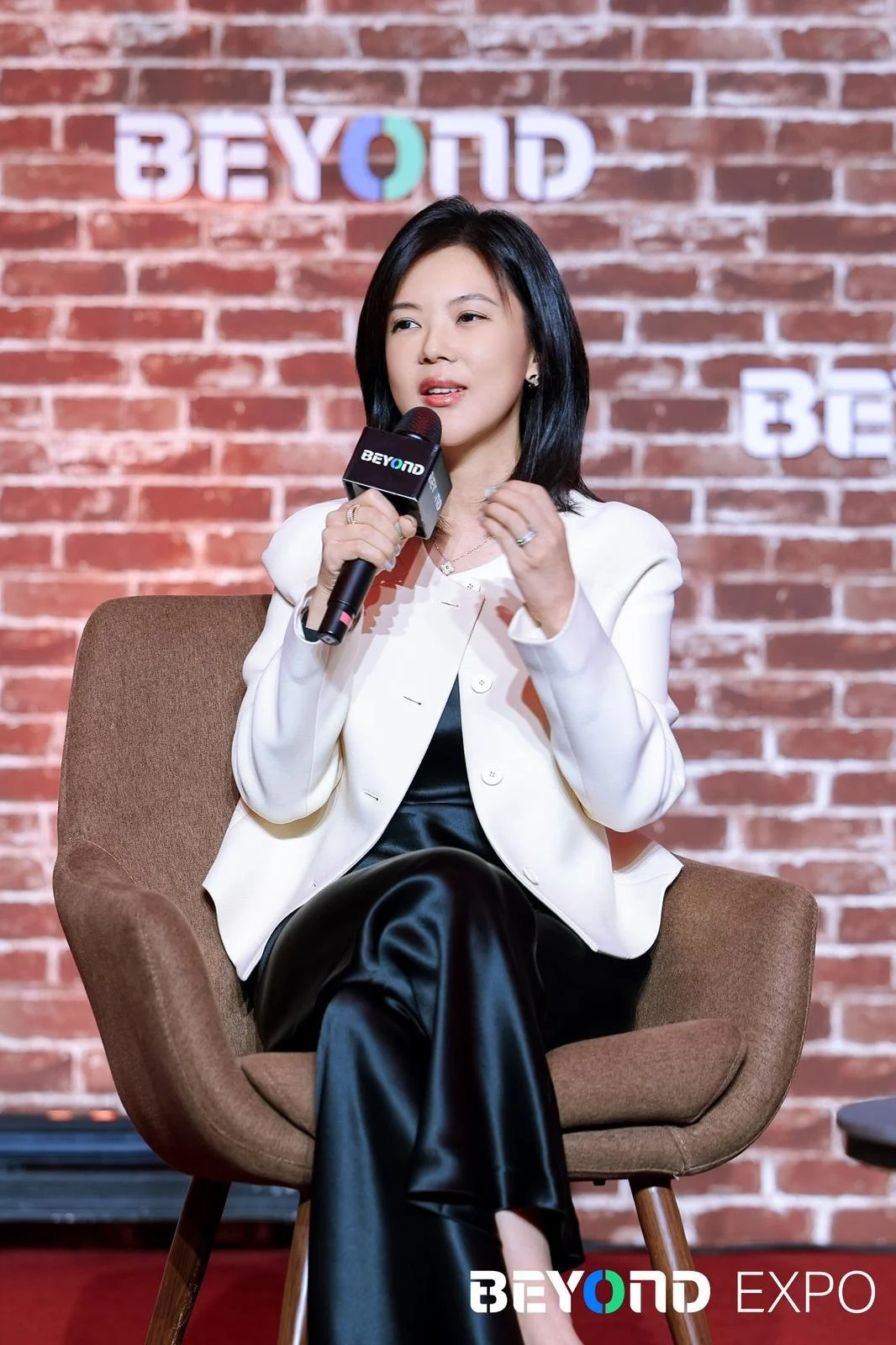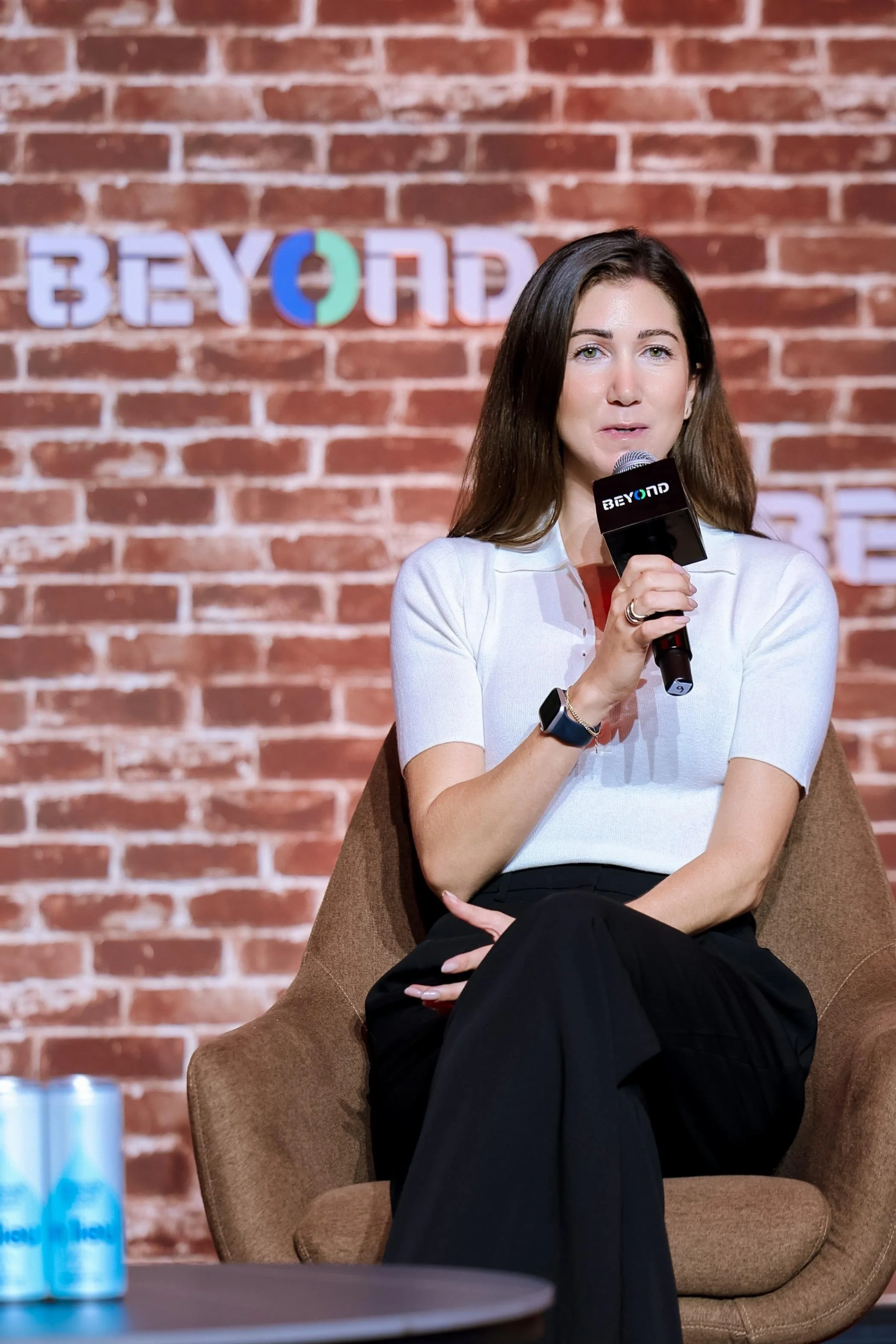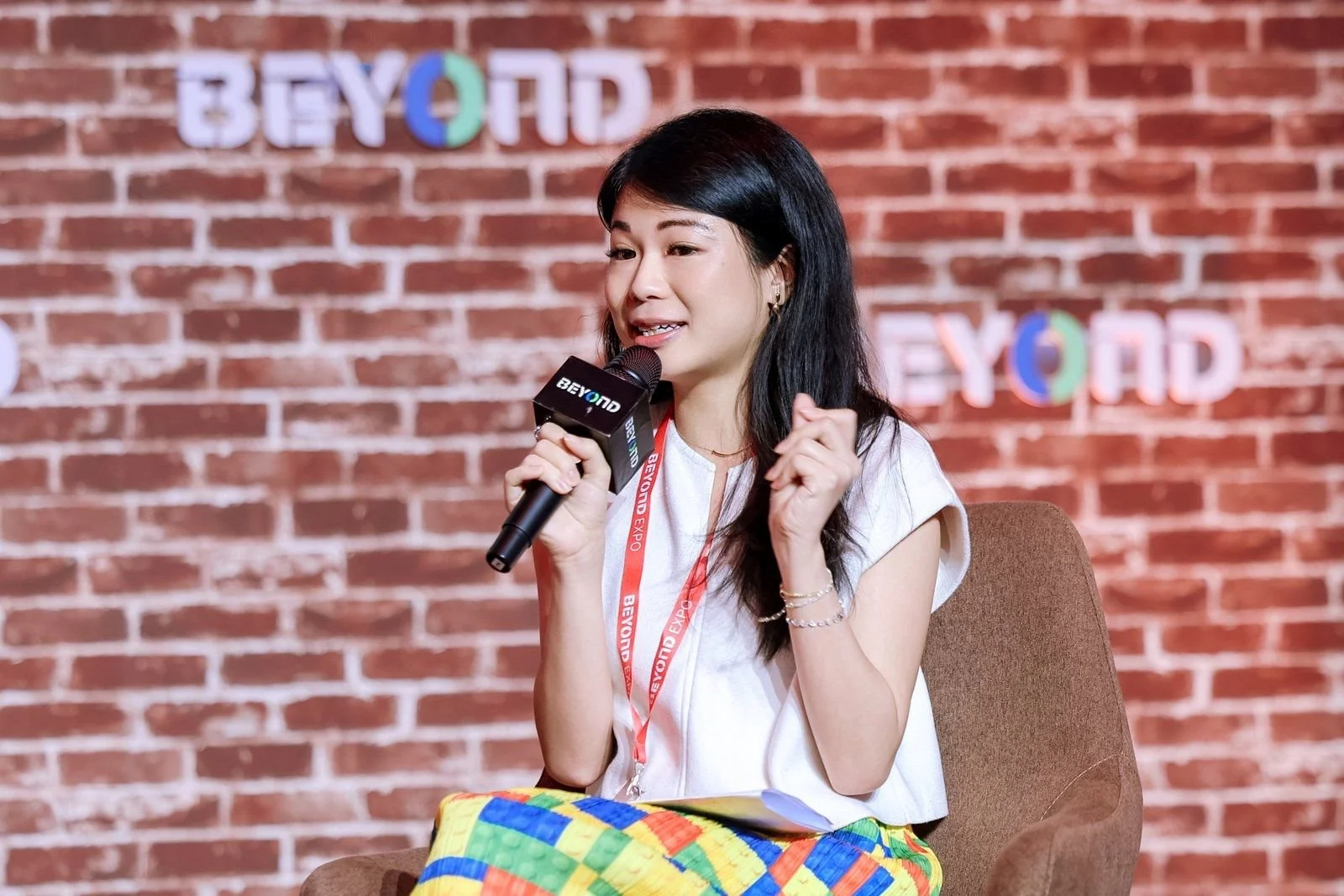From Asia to the World: Tapping Regional Expertise for Global Impact
On May 22, Global Women Asia supported and participated in the BEYOND SHETECH Summit—an event designed to bring together global women leaders and explore the presence of tech, business, culture, and female impact in innovation. Held in Macao, BEYOND SHETECH Summit 2025 is part of BEYOND Expo—Asia’s top technology event.
Panelists Elaine Jiang, Olivia Plotnick, Sarah Tong and Moderator Xinmei Shen
Global Women Asia brought together four female leaders with backgrounds in journalism, health tech, digital marketing, STEM education, and AI innovation for the panel, From Asia to the World: Tapping Regional Expertise for Global Impact. South China Morning Post’s digital reporter Xinmei Shen moderated the panel, where key insights regarding leadership, entrepreneurship, and their experiences with communities and culture were shared.
Elaine Jiang, Humansa Founding Partner
After 12 years in management consulting, Elaine Jiang became a founding partner of Humansa, a health and longevity company focused on providing personalized healthcare solutions.
She shares that there is a shift in consumers’ needs: “Healthcare is shifting from reactive ‘sick care’ to active health management, where individuals proactively pursue optimal health, much like wealth management. This shift reflects a growing demand for longevity, vitality, and personalized care.”
Additionally, to expand healthcare globally, she highlights the necessity for a balance of localization and global best practices. Her experience has helped her realize these guidelines:
1. Local Adaptation: Tailoring solutions to align with local regulations, cultures, and practitioner availability.
2. Leveraging Strengths: Combining health checks, precision medicine, functional medicine, and regenerative medicine from different markets.
3. Cultural Respect: Ensuring solutions are relevant and accessible to local communities.
Olivia Plotnick, Wai Social Founder
GWA’s 2023 Fellow Olivia Plotnick answered her calling to found her own social marketing firm, Wai Social, after moving to Shanghai, where she found herself surrounded by bold and creative entrepreneurial women. Being a part of the International Professional Women’s Society (IPWS) and Global Women Asia has made her realize the value of having a network of supportive women to learn from, fall back on, and lift up.
She shares that she has “benefited from mentorship, as well as being a mentor to other young women, equally fulfilling and rewarding roles.”
To her, the globalization of brands is exciting: “Out of my ten years in mainland China, the present moment has been the most exciting in terms of Chinese brands and consumer trends going global.”
“Many global consumer trends have begun to mirror Chinese consumer trends, such as the use of social media as platforms for search and discovery, private traffic and social commerce. It’s exciting to see people around the world exposed to, and curious about China beyond agenda-driven headlines and politics — a testament to Chinese heritage, craftsmanship, and innovation.”
Sarah Tong, Big Bang Academy Co-Founder
As a child, GWA’s 2024 Fellow Sarah Tong first tinkered and reassembled her family’s TV, sparking a lifelong curiosity and love for problem-solving and science. Today, she has co-founded Big Bang Academy, an immersive STEAM education company that reaches children across Hong Kong, China, Singapore, and the United States.
She shares her experiences as a woman in these science and entrepreneurial fields: “As a woman in tech, my journey has been shaped by both empowerment and challenges. Growing up in an all-girls school, I felt a strong sense of equality. But when I entered engineering at university, I was suddenly part of a minority—only 30% of my peers were women. This stark contrast motivated me to advocate for gender equality in STEM and inspire more girls to pursue careers in these fields.”
She shared how Big Bang Academy is improving STEM education around the world, mainly due to “an exam-driven culture that prioritizes short-term results over creativity and innovation”:
“STEM education thrives on curiosity, experimentation, and critical thinking, which are often overlooked in this results-oriented environment. At Big Bang Academy, we’ve had to adapt to cultural realities. For instance, during the COVID-19 pandemic, we launched an online platform with subscription-based experiment kits, empowering kids to learn through hands-on activities anytime, anywhere. As the world reopened, we pivoted and launched in-person classes, creating an entirely new operational model. It wasn’t easy, but it taught us the importance of agility in education. Globally, the key lesson is that we must equip children with adaptable, future-proof skills that go beyond specific technologies.”
Today, she shares that the biggest opportunity in the ability for AI to reshape automation, but with that comes the “curiosity gap,” or a separation between those who do and don’t embrace AI.
She believes that by fostering curiosity and resilience in children, we can help bridge this gap and build a future where innovation is accessible to everyone. A STEM education can help build critical skills such as: Curiosity, Resilience, Agency and Self-Motivation, Leadership, and Social influence.
Thank you to our panelists and supporters! Learn more about Global Women Asia and subscribe to our newsletter.





